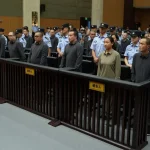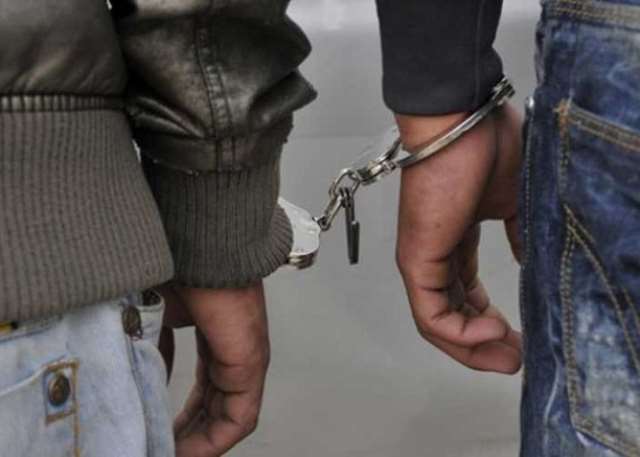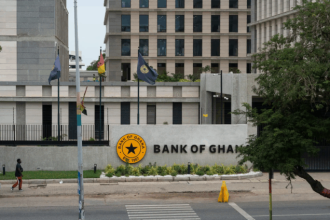Consumers of petroleum products are likely to pay more in the coming days as the government slaps more taxes on the product.
This came to light during the presentation of this year’s budget in Parliament.
“I should note that on the basis of existing world crude oil prices, the implementation of the two proposed levies for sanitation and pollution as well as to pay for excess capacity charges, would result in a 5.7% increase in petroleum prices at the pump,” Minister for Parliamentary Affairs, Osei Kyei-Mensa-Bonsu told parliament on Friday, March 12, 2021, as he presented the 2021 budget in the absence of Finance Minister-designate Ken Ofori-Atta.
The government is projecting US $ 800million in Petroleum Revenue for 2021.
Ghana’s revenue is hinged on crude oil projected at a benchmark price US$54.75 per barrel, up from US$39.1 per barrel for 2020.
What levies have been introduced?
Mr Kyei-Mensa-Bonsu explained, “government is proposing a Sanitation and Pollution Levy (SPL) of 10 pesewas on the price per litre of petrol/diesel under the Energy Sector Levies Act (ESLA).
He added: “Mr Speaker, it has become very necessary for the government to consider a review of the energy sector levies. The Energy Sector Recovery Levy of 20 pesewas per litre on petrol/diesel under the ESLA is hereby submitted to this House for approval.”
According to him, under the Energy Sector Recovery Levy (Delta Fund), the government abolished excise taxes and reduced the special petroleum tax from 17.5% to 13% to mitigate the impact on domestic petroleum prices when crude oil prices increased substantially between 2017 and 2018.
“However, due to the difficulties faced by our economy arising from higher excess capacity payments in the energy sector, which have not reflected in electricity tariffs” the government has been compelled to revisit the levies.
He pointed out the need to find additional resources to cover “excess capacity charges that have resulted from the Power Purchase Agreements (PPAs) signed by the previous government which required payments for capacity charges even when the plants involved were idle or unutilised”.
Mr Kyei-Mensa-Bonsu further debunked assertions of rising fuel prices under the Akufo-Addo administration.
He backed in rebuttal with data to show “that under the Akufo-Addo Government, the increase in petroleum prices is the lowest in the Fourth Republic”.
“In the year 2020 for example, there was a cumulative net decrease in petrol prices at the pump by 7.46% and diesel by 9.53%. Between 2009 and 2012 average petrol prices increased by 5% annually. Between 2013 and 2016, average petrol prices increased by 24% annually. Between 2017 and 2020, average petrol prices increased by 8.26% annually,” he claimed.
Recent fuel hikes
In February 2021, there was an increment in fuel prices between 10pesewas and 16 pesewas at the pumps of Major Oil Marketing Companies (OMCs) by the second week of February 2020.
The Chamber of Petroleum Consumers-Ghana (COPEC Ghana) Executive Secretary Duncan Amoah has been championing a cut in levies in the past.
he called on authorities to implement mechanisms to arrest the price fluctuations.
He was of the view that vehicle operators and the public should not pay more for fuel due to geopolitical forces in foreign countries where fuel is imported.
Crude oil-producing country importing fuel for use
Despite the country producing oil in large quantities, the lack of refineries has prevented the country from enjoying lower prices of finished products.
As of September 2020, crude oil production capacity in Ghana was at 196,000 barrels per day.
Addressing a meeting with 20 international oil companies in Norway, Finance Minister Ken Ofori-Atta indicated that Ghana could hit 500,000 barrels per day by 2025.
However, Ghanaians continue to buy fuel at exorbitant prices due to importation and taxes slapped on the commodity.
What can be done to address the situation?
The COPEC-Ghana Executive Secretary observed, “We have a local refinery that we could have leveraged to get some fuel security at lower prices, but unfortunately we don’t think there is political will to refurbish the Tema Oil Refinery”.
Mr Amoah observed a fully-functional refinery would cut the logistical cost which adds to the price build-up by exporting crude to Europe to be refined before importing back to Ghana.
“The need to get TOR back on stream and the need for political interference to be stopped holds the key for all for us,” he underscored.
Additionally, he cited the Bulk Oil Storage and Transportation Company Limited (BOST) failure in executing its mandate.
Mr Amoah explained that BOST is supposed to store huge volumes of fuel and release to the market to level prices and to check shortages “without overstretching the already burdened Ghanaian taxpayer”.
However, “we do not see that function of BOST and they are now focusing on trading…which was not the purpose of the BOST Act but to hold strategic stock”.
















